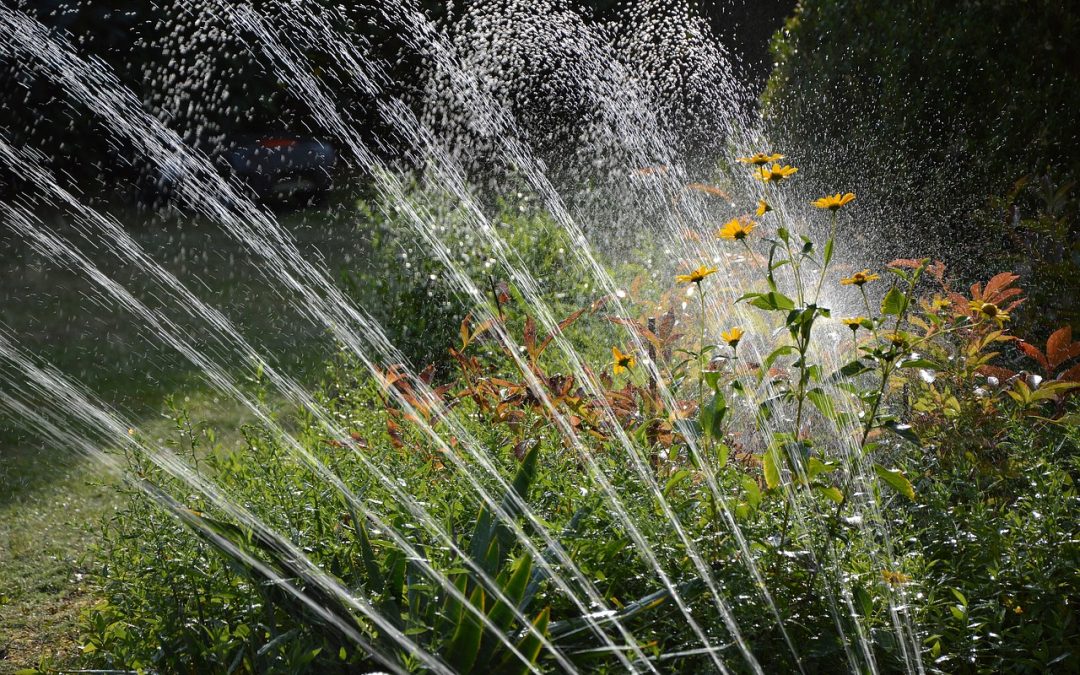Water is one of our most precious natural resources, that’s why many cities and counties put restrictions on lawn watering. The lawn watering restrictions in Raleigh are based on current drought conditions and often change, depending on the current weather patterns.
The majority of Raleigh’s water comes from Falls Lake Reservoir in northern Wake County. The water is treated at the E.M. Johnson Water Treatment Plant, which process and distributes more than 48 million gallons of water per day.
Our area has had a few years of plenty of rainfall along with two watersheds for our community. As of mid-2019, there are no watering restrictions in Wake County, but that could change if we see some of the dry conditions plaguing the southern end of the state. Check the U.S. drought map regularly to see which areas are hurting. The city will also update its website if it becomes necessary to issue restrictions.
Permanent Conservation Measures
The city encourages everyone to practice permanent conservation measures. Under these measures, lawn watering anytime is permitted, but landscapes should receive only 1 inch of water per week. These voluntary guidelines should keep the reservoir from falling to a dangerously low level:
- All water customers and irrigation systems should avoid wasting water. That includes allowing water to spray onto surfaces such as sidewalks, streets, driveways, and parking lots.
- Restaurants serve potable water to customers only when asked.
- Hotels change linens when requested by guests.
3 Stages of Conservancy
The city has a series of trigger points for imposing restrictions, based on the level of the Falls Lake Reservoir and the time of year. For example, if levels drop below 65 percent of capacity in June, the city will put stage 1 restrictions in place. That means you’ll only be able to water your lawn once a week on a day designated by whether your address ends in an odd or even number. If the reservoir levels should fall below 30 percent in June, stage 3 restrictions go into place. In that case, all lawn watering (even the city’s athletic fields) is off limits.
Violating the city’s water restrictions could cost you a fine of up to $500.
Stage 1 Allowed Activities:
- Sprinkler systems can run between midnight and 10 a.m. on Tuesday for homes whose addresses end in odd numbers, on Wednesday for even-numbered addresses.
- Hose-end sprinklers can run 6-10 a.m. and 6-10 p.m at odd addresses on Saturday, on even addresses Sunday.
- Hand-held and bucket watering.
- Drip irrigation.
- Athletic field irrigation.
- Swimming pools.
- Car washing.
Stage 2 Allowed Activities:
- Handheld and bucket watering.
- Drip irrigation.
- Athletic field irrigation.
- Swimming pools.
- Car washing.
Stage 3 Allowed Activities:
- Topping off swimming pools.
- Limited car washing.
- Pressure washing only for sanitary and health purposes.
Reuse Water Program
The city also offers a reuse water program that treats wastewater into reclaimed or nonpotable water. This helps lower the effect of a drought for homeowners who use this water for their lawns and gardens. The reuse water is not for human, pet, or livestock consumption.
You can get recycled water at the Neuse River Resource Recovery Facility, in Southeast Raleigh, or at the facility at Little Creek WWTP in Zebulon. The reuse water is free, but you’ll have to complete a certification training before picking it up.
Taking advantage of the city’s reuse water program is a great way to keep your lawn hydrated even during a severe drought. Cutting down on your lawn size and choosing to xeriscape is another way to decrease your water consumption. Remember, in times of drought, you can do without.
Interested in more information about gardening or lawn care in Raleigh? Visit our Raleigh, N.C., lawn care page.

